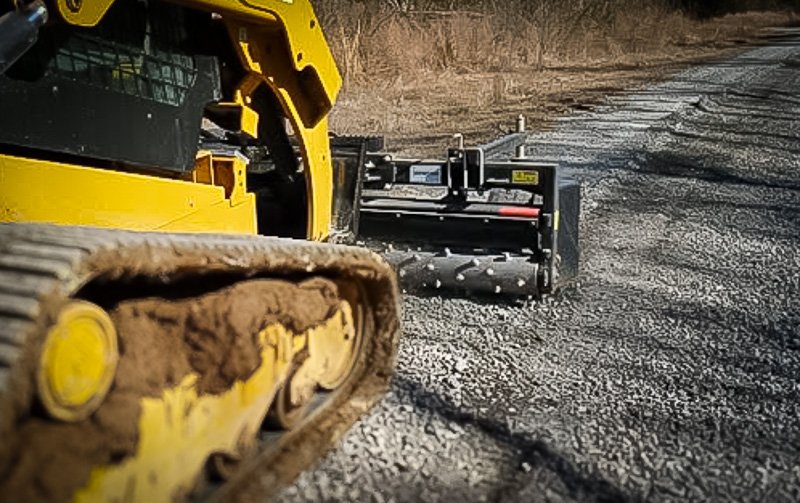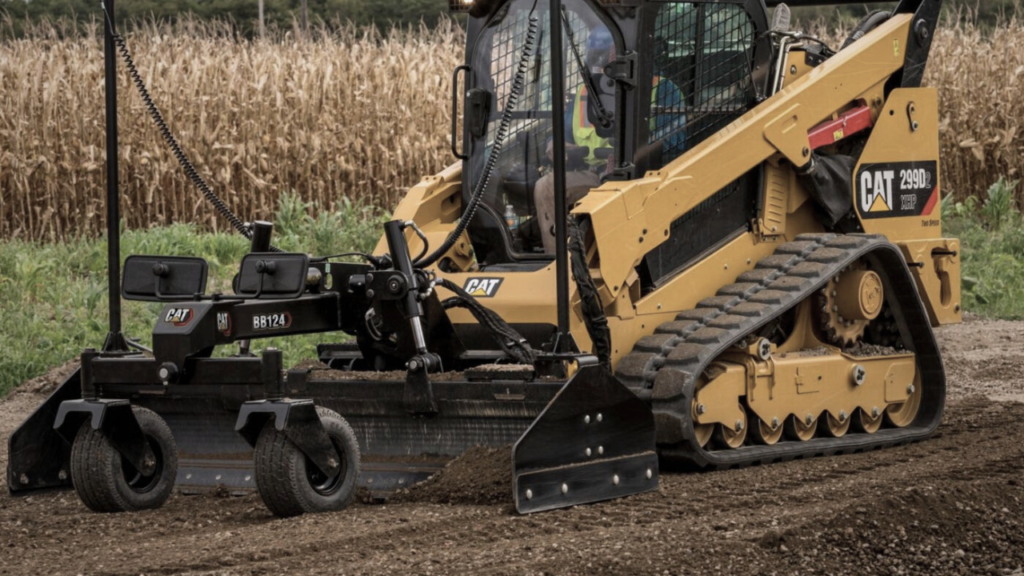Gravel Driveway Cost in Arizona | Scottsdale, Rio Verde & Cave Creek
Gravel driveways are common throughout Arizona—especially in areas like Scottsdale, Rio Verde, and Cave Creek, where properties often have long driveways, desert terrain, and uneven grades. While gravel is typically more affordable than asphalt or concrete, the cost of a gravel driveway in Arizona varies widely based on site conditions.
When homeowners ask about gravel driveway cost in Arizona, the answer depends on grading, drainage, slope, soil composition (including caliche), access, and material selection, all which play a major role in determining scope and pricing. Many North Scottsdale, Rio Verde, and Cave Creek properties also require additional grading or drainage work to manage monsoon runoff and prevent washouts.

This page explains how gravel driveway costs are evaluated in Arizona and why accurate estimates require more than a flat price or online calculator.
Re-grading or Rejuvenating a Gravel Driveway
Over time, gravel driveways in Arizona develop ruts, washboarding, and potholes—often caused by runoff, poor drainage, or insufficient compaction. Re-grading corrects these issues by reshaping the driveway so water flows away rather than eroding the surface or base.
Some homeowners only need a surface correction using existing material. Others require added gravel, decomposed granite, or recycled asphalt millings to rebuild the driving surface. Properties that have experienced repeated washouts often need deeper base work or drainage improvements to prevent the same issues from returning.
Because Arizona properties vary significantly—from flat desert lots to sloped hillside parcels—re-grading projects can range from straightforward surface work to more involved structural corrections.
Residential Gravel Driveway Pricing: Why Costs Vary in Arizona
Many homeowners search for gravel driveway pricing online. While general information can be helpful, square-foot pricing rarely reflects real-world conditions in Arizona.
Most residential gravel driveway projects fall into one of three categories:
- Surface refresh – reshaping and compacting existing material
- Re-grading with added material – correcting slope and replenishing gravel or millings
- Full rebuild – addressing drainage failures, base erosion, or long-term wash damage
Two driveways of the same size can require very different solutions depending on slope, soil, runoff patterns, and access. That’s why accurate pricing depends on evaluating the property itself—not averages.
Gravel Driveway Cost Factors in Arizona
Several factors influence the final cost of a gravel driveway project. The most common include:
Material Selection
Common materials used in Arizona include crushed gravel, decomposed granite, base rock, and recycled asphalt millings. Each performs differently under desert conditions and vehicle traffic. Choosing the correct material helps reduce maintenance and improve longevity.
Grading and Slope

Many Scottsdale, Rio Verde, and Cave Creek properties are not naturally flat. Proper grading ensures water drains away from the driveway instead of flowing down the center or toward structures. Even small slope corrections can significantly improve performance.
Drainage and Wash Control
Monsoon rains and flash runoff are a leading cause of gravel driveway failure. Drainage solutions such as swales, culverts, or trenching may be required where water crosses or runs alongside the driveway. While drainage adds scope, it often prevents repeated repairs.
Permits and Local Requirements
Depending on location and proximity to washes or roadways, permits may be required for grading work. Local requirements vary by municipality and are reviewed during the estimating process.
Project Size and Site Access
Long driveways and private access roads require more material, equipment time, and compaction. Limited access, steep grades, or tight turnaround areas can also affect equipment selection and logistics.
Residential Gravel Driveways in Arizona
Gravel driveways remain one of the most practical solutions for Arizona homes with long access drives. When properly graded, compacted, and drained, they perform well under desert conditions and everyday vehicle use.
Adequate depth and compaction are critical. Driveways that are too thin or improperly prepared often fail during heavy rain events, leading to rutting and washouts.
Private Gravel Roads and Long Access Drives
Private roads and long access drives require additional preparation to support vehicle loads and resist erosion. Proper base construction, material layering, and mechanical compaction are essential for long-term durability—especially in areas subject to runoff.
Reducing preparation may lower initial cost but typically results in premature failure and higher long-term maintenance.
Asphalt Millings (Recycled Asphalt)
Recycled asphalt millings are a popular option for Arizona gravel driveways and private roads. They provide a smoother driving surface than traditional gravel and compact well when properly installed.
Millings are typically more affordable than new asphalt and offer environmental benefits through material reuse. As with any material, performance depends on proper grading, drainage, and compaction.
Why We Don’t Provide Flat-Rate Pricing Online
Gravel driveway and grading projects in Arizona are highly site-specific. Slope, drainage patterns, soil conditions, access, and material availability cannot be accurately assessed without seeing the property.
Flat-rate pricing often leads to unrealistic expectations and unexpected changes once work begins. Our estimates are based on actual site conditions—not averages—to deliver durable, long-term results.
Before Requesting an Estimate
Gravel driveway and grading projects in Arizona are not one-size-fits-all. Accurate estimates require evaluating slope, drainage, soil conditions, and access on-site.
We focus on long-term solutions, not temporary surface fixes.
If you’re looking for the lowest possible price or a quick cosmetic repair, we may not be the right fit.
If you’re looking for a properly graded gravel driveway designed for Arizona conditions, request an on-site evaluation here.
Get an Estimate
If you’re considering a gravel driveway project in Scottsdale, Rio Verde, or Cave Creek and want a solution built to last, request an on-site evaluation. We’ll assess your property, explain your options, and provide a clear, site-specific estimate based on real conditions.
Go here to read more about grading or leveling your yard.
